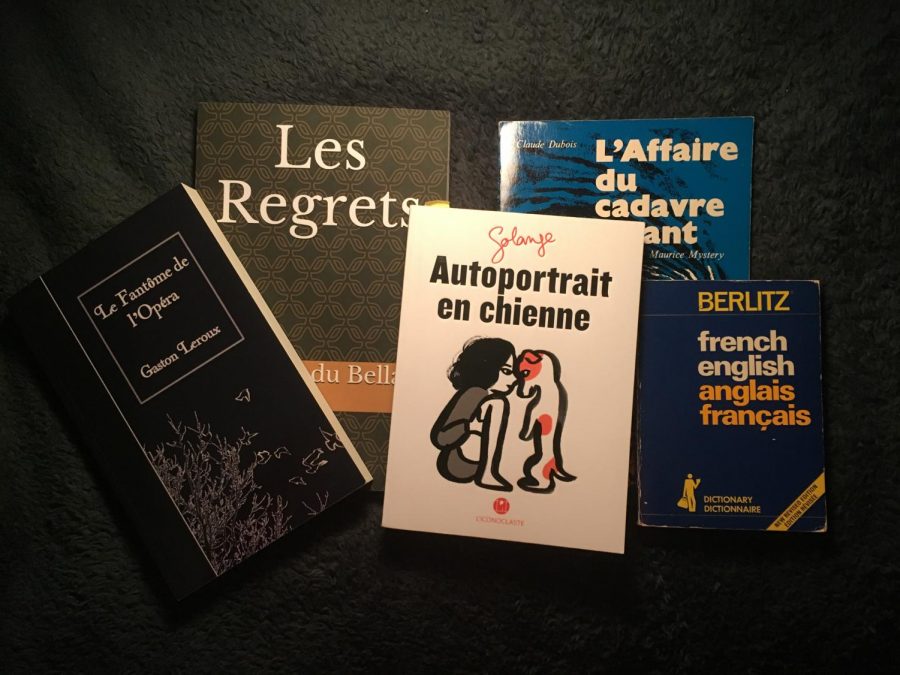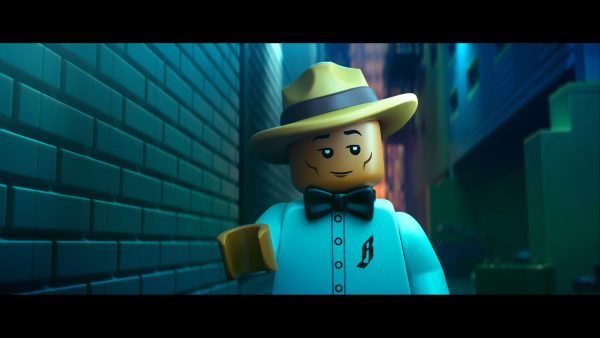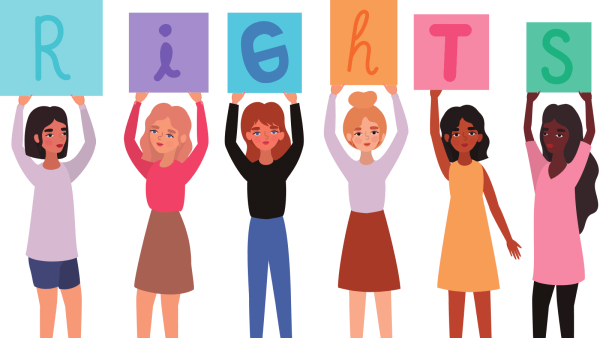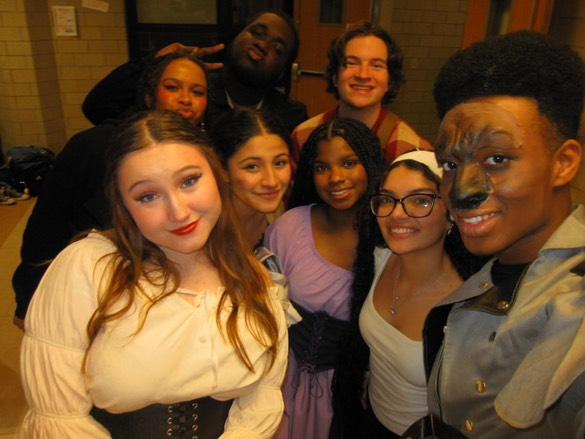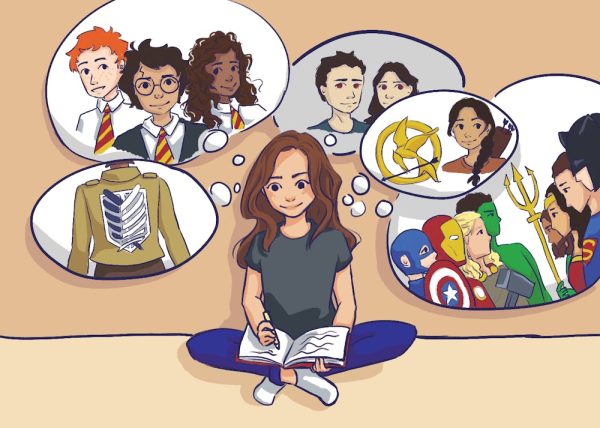Le Français en Rose
Learning a foreign language can be intimidating, but your studies can be more productive and enjoyable by adapting a few strategies!
Learning a foreign language can be intimidating. When understanding completely new grammar rules, vocabulary, and pronunciation are just the tip of the iceberg- one cannot neglect tense of speaking, reflexive verbs, foreign slang, and dialects of the language!- with all this considered, the task hardly seems worth the effort.
This same lack of confidence has caused so many people I know to quit pursuing language learning. As the work put into studying doesn’t show any benefits within day-to-day life, people are often discouraged and unmotivated to continue studying.
Yet the benefits of speaking a foreign language are incredible! The ability to communicate with more people, engage in social media platforms, and participate in another language’s culture is completely underrated. For people of all interests, from literature to sports, speaking another language opens so many opportunities to interact with what you enjoy.
Thus, the key to approaching a foreign language is to practice by doing what interests you.
As I only study French, the resources listed will be mainly focused on French language learning. However, many of the tools used can be applied to any language. The following is a guide to learning French as I found to be the most efficient and enjoyable methods:
- Watch French Videos. Did you know there’s an entire section of YouTube with French creators? I hadn’t, but once I discovered these channels I stuck with them. I included videos on the top of this list because it is truly the best resource for learning a new language. Listening to natives speak their language (or other Americans learning the same language as you) is incredibly beneficial, especially in pronunciation.
- DAMONANDJO (FRENCH, ITALIAN, PORTUGUESE, GREEK, …) This channel, run by two travel-bloggers in their twenties, has videos ranging from grammar lessons to stories about the horrors of obtaining a French visa. Being the first channel I discovered when seeking out self-study, I am constantly recommending Damon and Jo to anyone curious about how to advance their French, both linguistically and culturally.
- SOLANGE TE PARLE (FRENCH/QUEBECOIS) Solange, a character played by Canadian-French actress Ina Mihalache, is a dreamy, idealistic, and poetic creator who creates videos entirely in French. Her channel, unlike many others, is easy to grasp for intermediate learners, as Solange tends to speak slowly and with great expression. For both studying pronunciation and emphasis in speaking, Solange’s videos are a great start. Many also have English captions if the idea of immersing yourself entirely sounds terrifying, but I do recommend you sit and watch without understanding as well
- INNER FRENCH PODCASTS (FRENCH) On this channel one can find 5-12 minute videos on a variety of subjects created with teaching french in mind. Many are humorous as well as interesting, discussing media, politics, or helpful language tools to keep in mind when speaking with natives. The narrator also speaks more slowly than a normal french speaker may (but not annoyingly so, as many learners’ podcasts do).
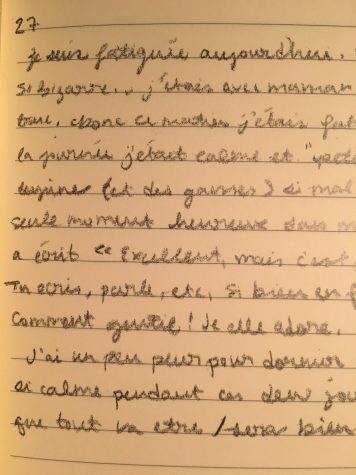
- Use Wordreference (ALL LANGUAGES) instead of Google Translate. As attractive as a quick and effortless translation seems, inputting a word and receiving the word you sought hardly ever happens without a loss of meaning. Words do not carry the same meanings throughout languages, making it very important for one to learn the context in which words are used, not just their direct translation. Wordreference is an incredible tool for this, providing a list of vocabulary and example sentences for each word one searches. Though it may take more effort to find the word you mean, this website broadened my sense of how words are received in languages, not just how they translate.
- Like, learn the, umm…, filler words. Textbook French is not the same as spoken French. Do you notice all of the sounds we make as English speakers? Umm, like, well, uhh- as much as these small noises are overlooked, filler words make up a large part of a language’s commonly heard vocabulary. By being able to identify distinct sounds of a language and mimic them in your own speaking, you’ll sound like a native in no time! For a brief reference:
- Bah is used mostly before declarative statements. For example, instead of just saying “oui”, you may hear “Bah oui!” or “Bah non”
- Bref is the equivalent of “in short”. After telling a lengthy story, you may summarize it with “Bref”
- Euh… is the French version of “umm…”, and is used very often.
- Ouais is the equivalent of an English “Yeah” (having spoken to French people and watched French movies, I promise this one is good to know!).
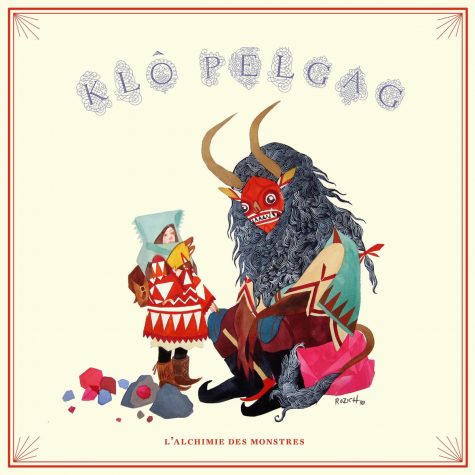
“L’alchimie des monstres” is an album by French-Canadian artist Klo Pelgag, one of my favorites!
- Listen to music The best way to learn is to do so without working at all, and music is the perfect tool for this. Aside from the benefits of an expanded vocabulary, pronunciation help, and new slang, French music is actually really good! There are pieces of all genres that can easily be found on Spotify or YouTube. For reference, some artists by genre include:
- Pop/Rap: L.E.J, Stromae, L’artiste, BRVMSOO
- Classics: Edith Piaf, Charles Trenet, Charles Aznavour, Francoise Hardy
- Rock: Louise Attaque, La Femme, Izia,
- Personal Favorites: Klo Pelgag, Pomme, Pierre Lapointe, Philippe Brache.
- Read. Once a basis of common vocabulary and grammar structure is built, reading books in your target language can be incredibly valuable. Most specific to reading is the ability to identify patterns within the language as you see it written out; it was through reading children’s books such as Le Petit Prince that I recognized how to write in past-imperfect tense, and with L’etranger I learned a new form of future speaking distinct from how we form English sentences. Making these connections on one’s own is much more rewarding than hours of rigorous study with a textbook, and the experience of learning will likely prove to last longer in one’s memory.
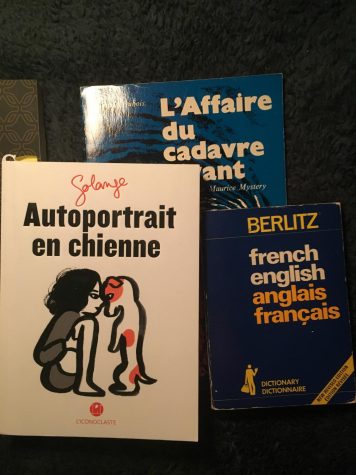
Nina Pschar
Immersing oneself in a world constructed entirely in French is intimidating, but once the words begin to have meaning, it’s fascinating to watch a story unfold!
I hope some of the described techniques prove to be as useful to my reader as they have been for me. By adapting French into my everyday life, language study hardly feels like working; rather, I am beginning to see French as another outlet for self expression. Bonne chance!
